- Home
- Helen Dunmore
Counting Backwards Page 7
Counting Backwards Read online
Page 7
no one can weigh them,
she says how beautiful
each smile, each footfall
each startled face
in the heat of love –
The Torn Ship
In what torn ship soever I embark
That ship shall be my emblem of Thy ark…
JOHN DONNE,
‘A Hymn to Christ, at the Author’s Last Going into Germany’
I was up and watching
that night the torn ship rode
through the lock gates and so came on –
In the guise of midnight
it slowly glided
owl-like in stubborn purpose
broken by the hands of the storm.
So it came on
blackly on the black water,
pulse by pulse it found harbour –
Through the shut lock gates it melted
to the ring and rocking
of a hundred tall masts
and then the swans woke from their nest
and stood unfurling
their steeple wings in warning
as the shade and shadow passed
of whatsoever torn ship it was.
Remember this was no ark
but something broken
long before the dark took it down.
Taken in Shadows
Beautiful John Donne. Who wouldn’t want you? You lean slightly forward, arms folded over your body as if to protect it from all the women who might otherwise tear off your clothes.
And yet, now that I look closely – and I do look very, very closely, John – there’s a teasing touch of something I can only call …readiness…in the way you’re sitting for your portrait. Take your eyes. They are clear hazel, brooding on something that is beyond me and a little to my right. What has caught your gaze? How many generations of women – and men too, I’m sure, men too – must have longed to make you turn to them. But your gaze has never shifted. Not once, in over four centuries.
Your mouth is red. The shadow of your moustache – so dandyish, so eloquently shaved into points! – serves to emphasise the perfect cut of your upper lip. Your lower lip is full, sensuous. Red lips, hazel eyes, arched, dark eyebrows. Your jaw is a line of perfection. The shadow of your broad-brimmed hat can’t hide the modelling of your temples. Your long fingers rest on your sleeve’s rich satin. You gleam in light from a source which is forever invisible, outside the frame. And then there’s the fall of your collar, the exquisiteness of lace thrown over darkness.
You’re in your glory. From where you sit inside your portrait, it’s the present day. The present moment, even, and you’re caught in it. Your right ankle itches, but you suppress the urge to scratch. Your heart throbs with its own quick life. Soon the sitting will be over, but you don‘t mind the time you spend here. The artist is anonymous to me, but not to you. You know him well. This portrait is important to you and you’ll keep it with you all your life.
The moment I look away, you smile, stand up and stretch like a cat. The artist, of course, has taken careful note of your pose before it dissolves.
‘Until next time,’ he says, wiping a brush.
‘Until next time,’ you agree.
You’ve given me the slip again, John. You’re back in your own world. It’s 1595, a date which I know well. I’ve studied your period, and I dress you in my rags of knowledge. I can analyse your social status in the light of your lace collar. You are history, John. You wouldn’t like that, I know. The fact that I can speak and you cannot would seem quite wrong to you, given the relative values of what we have to say.
You know 1595 from the inside, by the touch of satin, the warmth of a spring day, the gamey smell of your own body, the bite of a flea at the nape of your neck. For you, the door is about to open into a stream of May sunshine that will make you blink. For me, it has closed forever.
The Elizabethan age has eight more years to run. The old Queen has kept the show on the road so much longer and more brilliantly than anyone had a right to expect. She has united the country. Those who are not united are dead, imprisoned, exiled, silenced or lying very low indeed.
You’re in your glory, but also in those shadows that wrap themselves around you like a cloak. Your mother has gone into exile, and your brother died in Newgate two years ago, because he harboured a priest. Your fellow Catholics are food for the scaffold. That is what hanging, drawing and quartering is all about. It does so much more than kill: it turns a protesting soul into bloodslimed joints of meat, laid on the block for the public appetite.
You don’t yet know for sure that England will not return to the faith, not soon, not ever, but I should say that you’ve already made an educated guess. You have, as we know, a great deal of imagination. You will do nothing which will allow your body to be seized, racked, beaten, imprisoned, to die in its own shit and blood and vomit on the clammy ground. You will not be carted to Tyburn to be pelted with the crowd’s insults, spittle and rotten fruit before you are lynched. Nor are you willing to endure the long, dismal martyrdom of being jobless, without influence, friends or position, bled dry by penal taxes. You are already preparing to leave the home of your soul, and find another if you can.
I look at your long, slender fingers. Perhaps you played upon the lute, as well as upon the emotions of a hundred women. Beautiful, beautiful John Donne. How were you to know that there’d be generations snuffling greedily over your portrait? You couldn’t guess, any more than Sylvia Plath guessed what would happen to her image after the lens clicked, her radiant smile faded and she got up from where she’d been sitting on a bank of daffodils with her infant son in her arms. How could you estimate the wolfish hunger of a public not yet born?
You and Sylvia are the kind we really love. You make us feel that we can climb right inside your lives. The only frustrating thing is that you keep looking at things we cannot see. You will never meet our eyes.
Listen, John, I can tell you what’s going to happen to you after you take off that lace collar. You’re going to screw up on a royal scale. You’ll fall in love with the wrong girl, miscalculate about her father coming round to your secret marriage (he won’t, not for years). You’ll find yourself in a cottage full of children, most of whom have coughs or colds or sweating sickness or some other early seventeenth-century malady, for much of the time. Life will become an everlasting winter, smelling of herbs, baby shit, sour milk and dirty clothes.
John Donne
Anne Donne
Undone
I wonder what your wife thought when she read that little epigram? Some of your children will die, or be born dead. With any luck you won’t feel it as we would these days. Poor little rabbits, you’ll be sorry enough for them while they’re alive, screaming their heads off, wanting all the things that nobody’s able to give them, such as antibiotics, central heating and a trip to Disneyland.
I expect your wife will have to sell that lace collar to pay for one of her confinements. You’ll lose your job. Everyone who owes you a grudge will take the chance to kick you now that you’re down. You’ll be out of favour for years. For all the effort you’ve put into avoiding martyrdom, you’ll achieve your own not very glorious exile in a borrowed cottage in Mitcham.
But none of that has happened yet.
‘Come and look,’ says the artist, and you saunter round to his side of the easel. Next week he will begin to paint your hands. It has already been decided that you will wear no rings. You don’t need to trumpet your status or your prospects, and besides, the artist prefers not to mar the effect of your long, eloquent fingers.
You stare thoughtfully at your unfinished portrait. It will wreak havoc for generations, that painted face. Cohorts of fifteen-year-old girls will fall for you and feel for you, as you struggle in the swamp of domesticity. ‘His wife had a baby a year, isn’t that gross? She must of been pregnant, like, all the time.’
But your true lovers are more sensitive. We know the inside story. You were undone indeed
, you and Anne. A piece of her soul went awry when she married you, and a piece of your soul left your body to meet it. You were never intact again. You tried to write with the noise of your little ones ringing in your ears. You went upstairs, you went downstairs, you went up to town and down to the country, you went to my lady’s chamber but there they still were, babbling, squabbling, screaming and squawking, catching quinsies and spotted fevers and scarlet fevers and marsh fevers.
You had no money and each child cost so much. Months of sickness and weariness for Anne, heavy clambering of the stairs, dull aches that heralded the rack of labour. The children’s voices floated, skirling. Tom fought with John, Constance bossed little Mary.
Mary died. Baby Nicholas died. The stillborn unnamed baby died. They floated off, little eager vagrant souls who had found flesh, but not for quite long enough. They were turned out of their bodies like tenants who hadn’t paid the rent. They left fragments of themselves: their blind, eager sucking, the drum of their feet inside the womb. Mary’s first words drifted around your house like feathers.
I was one of those fifteen-year-olds, of course, and head-overheels in love with you. You were so unhappy. With what brave grace you wrote of your ‘hospital at Mitcham’ where the children grew and the poems shrank. You were kept busy writing begging letters. You had to have patrons, even though so many had turned their backs. No one wants to be contaminated by social failure. You’d stepped out so boldly and now you had to fight for a foothold somewhere, anywhere.
I would have done anything for you, when I was fifteen. I even made friends with your wife. Yes, in that hasty, obsequious way of a very determined girl when she pits herself against a grown woman and a mother. I could babysit for Anne perhaps. Surely she would like to have a nice sit down? I shepherded little Constance and John and Tom and Mary into the other room, sang sweetly to them, gave them their dinner and washed their bare, rosy feet. A curl of green snot crawled in and out of Mary’s nostril as she breathed. I found a rag and wiped it away tenderly.
There was silence from the bedroom. Anne must be sleeping, I thought, and no wonder. Her pregnancy looked like a growth on her skinny body. Her skin was blue-white. She wore a married woman’s cap and the hair that escaped from it was thin and lustreless.
I wonder, by my troth, what thou and I
Did til we loved?
Let Anne sleep for a while, poor thing. I didn’t want the children to wake her, so I hoisted Mary onto my knee and began to tell a story. She twisted round in my lap and pressed my lips together with her fingers. The others pinched and poked and whinged. I couldn’t even come up with a nursery rhyme. It was time to wake Anne up again.
I tiptoed to the door of her bedroom. Your bedroom too, but I prefer not to think about that. I heard something I didn’t expect: laughter. A slash of dread went through me. You’d got in there somehow. You were laughing with her, privately. But no. I peeped through the gap in the door and there she was, quite alone, sitting up in bed and reading. A few seconds later she laughed again, and looked up with vague shining eyes as if she expected someone. She didn’t see me, of course.
I’ve put a stop to all that sort of thing. I’m not fifteen any more. The past is the past and it’s better, much better for everyone, if it doesn’t come alive. I don’t want to see your beautiful face grow old. I don’t want to see your wife’s plain, worn features light up when she thinks I might be you, ready to share her laughter. I went too far that time, but I’ve pulled myself back and I’m in command again. You are history, John. You’ve written all your poems. Your tongue is still. I refuse to be coerced into seeing things your way.
You’re back inside the portrait frame, beautiful and contained. Your red lips. Your high cheekbones and the pure almond cut of your eyelids. It’s no surprise that you liked this portrait so much. What a blend of sexual magnetism and intellectual glamour. But I’ve just noticed something else that I’ve never seen before. There’s a glint of humour in your eyes, as if you’re wondering how many more centuries of devastation you’ll be capable of before your painted magic fades. There are just the two of us, John. Why won’t you look at me? Why won’t you tell me what you see?
Prince Felipe Prospero
(1657-1661)
He wears a silver bell
so that in the shadow
of palace corridors
he can always be followed,
he wears a ball of amber
to ward off infection,
he wears an amulet
against malediction,
so blessed and protected
with hair like thistledown
and a gaze the painter
‘found in heaven’.
He wears the slightest of frowns
but keeps to his station
as we do, watching him.
Picture Messages
of trees: olive and lemon,
of eggs and bacon
of my father at The Tin Drum
on his last weekend
smiling,
with coffee in front of him.
We went to Latinos
to eat gambas a la plancha
while you chatted to Mariella,
we went home and you sat
in the red armchair.
Your hand took mine:
it was that half hour before departing.
You took my bag to the door
and had your hand on the lift button
as usual pretending surprise
that anyone could shun
the judder of that contraption
with its random halts between floors,
I said I would see you soon
after a last embrace,
and you kept your hand raised
until I was swallowed
in the dark of the turning staircase.
Lethe
Is it Lethe or is it dock water?
Either has the power.
The neighbourhood killer
is somewhere quietly washing up
dipping and dipping his fork
in the dirty water.
The police vans sit crooning
on the crux of the Downs.
How quickly the young girls walk
from work and from the shops.
The frost that was bone cold
has eased into rain, the dock water
takes everything and turns it brown.
The Queue’s Essentially
The queue’s essentially
docile surges get us
very slowly somewhere.
Like campfire, life springs up –
that pair ahead of me
(newly landed on Easyjet, he
shunts the wheeled, packed
tartan suitcase
inch by inch
through jumpy fractures of brake-light
on wet pavement) –
that pair ahead of me
who graze on their vegetable pasty
and pass it in Polish
from his hand to hers –
so intimate, rained-upon –
learning so quickly it will be a mistake
to take that taxi
all the way to Kilburn –
The Captainess of Laundry
I am the captainess of laundry
and I sing to its brave tune,
to the crack and the whip and the flap of the sheets
and the rack going up, going down, going down
and the rack going up and going down,
I am the captainess of laundry
and I salt my speech with a song
of the bleach and the blue and the colours holding true
and the glaze of the starch on my skin, my skin,
and the glaze of starch on my skin,
I am the captainess of laundry
and I swing my basket through the town
with the sheets and the shirts and the white petticoats
and a snowy-breasted cover tied around, tied around
>
and a snowy-breasted cover tied around.
The Day’s Umbrellas
On the same posts each evening
the harbour cormorants
hang out their wings to dry
like the day’s umbrellas
as the late ferry passes.
In sour-sweet ramparts of ivy
the blackbirds call
drowsily, piercingly.
Above them the gulls
are casing the terraces.
Thickly, the pigeons
groom their own voices
as parents in the half-light
tiptoe away from babies
over their heads in sleep.
The Deciphering
How busy we are with the dead in their infancy,
who are still damp with the sweat of their passing,
whose hair falls back to reveal a scar.
We think of wiping their skin, attending them
in the old way, but are timid, ignorant.
We walk from the high table where they are laid
leaving their flesh royally mounded
just as they have left it
for the undertakers to cherish.
We consider the last kiss,
the taste and the grain of it.
The lift doors squeeze open, then shut.
All day we think that we have lost our car keys.
There is a feeling in the back of the mind

 The Ingo Chronicles: Stormswept
The Ingo Chronicles: Stormswept The Deep
The Deep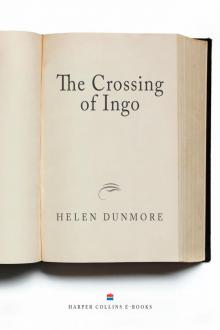 The Crossing of Ingo
The Crossing of Ingo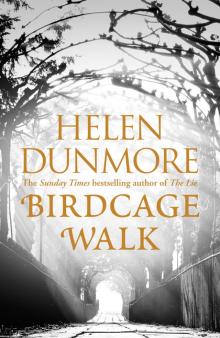 Birdcage Walk
Birdcage Walk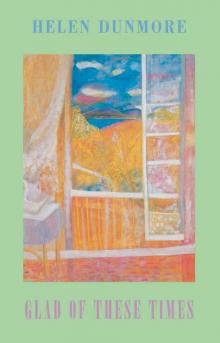 Glad of These Times
Glad of These Times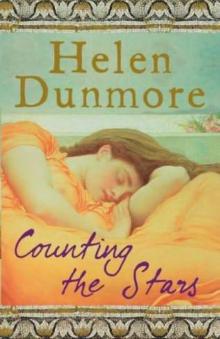 Counting the Stars
Counting the Stars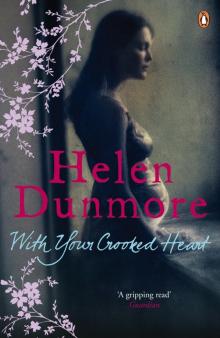 With Your Crooked Heart
With Your Crooked Heart Burning Bright
Burning Bright House of Orphans
House of Orphans Mourning Ruby
Mourning Ruby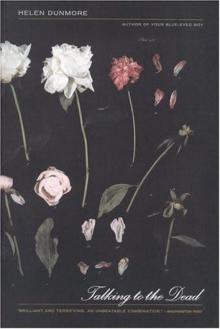 Talking to the Dead
Talking to the Dead Exposure
Exposure Ingo
Ingo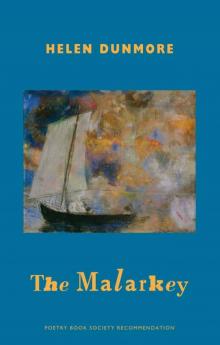 The Malarkey
The Malarkey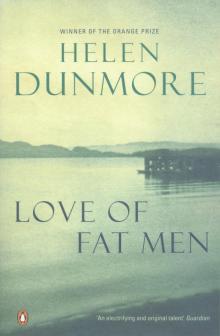 Love of Fat Men
Love of Fat Men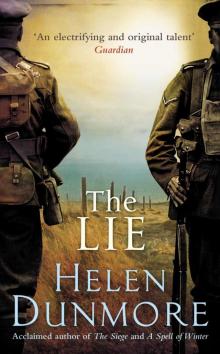 The Lie
The Lie The Siege
The Siege Inside the Wave
Inside the Wave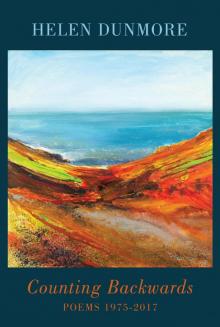 Counting Backwards
Counting Backwards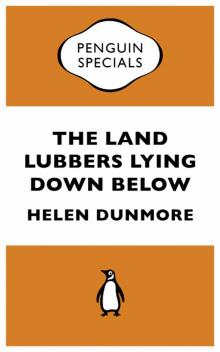 The Land Lubbers Lying Down Below (Penguin Specials)
The Land Lubbers Lying Down Below (Penguin Specials)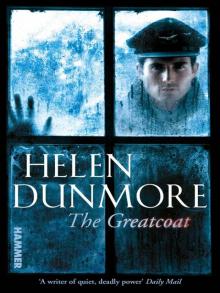 The Greatcoat
The Greatcoat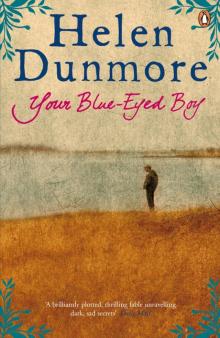 Your Blue Eyed Boy
Your Blue Eyed Boy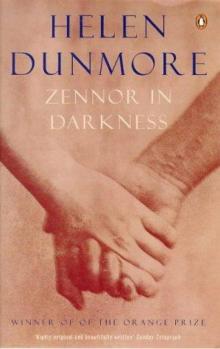 Zennor in Darkness
Zennor in Darkness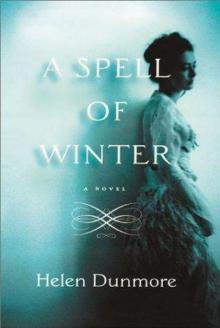 Spell of Winter
Spell of Winter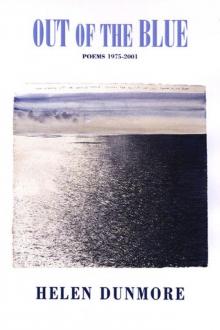 Out of the Blue: Poems 1975-2001
Out of the Blue: Poems 1975-2001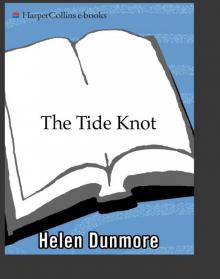 Tide Knot
Tide Knot The Betrayal
The Betrayal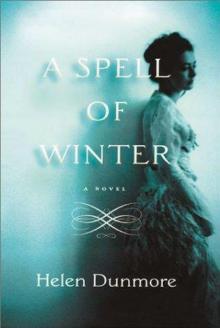 A Spell of Winter
A Spell of Winter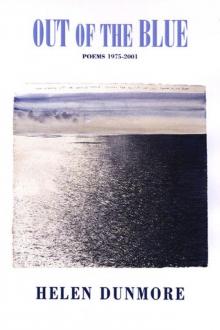 Out of the Blue
Out of the Blue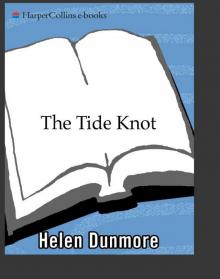 The Tide Knot
The Tide Knot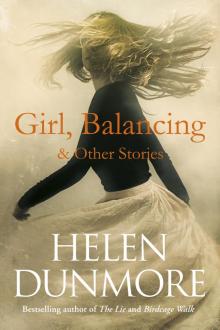 Girl, Balancing & Other Stories
Girl, Balancing & Other Stories Betrayal
Betrayal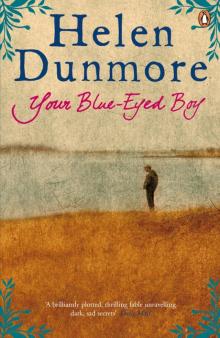 Your Blue-Eyed Boy
Your Blue-Eyed Boy